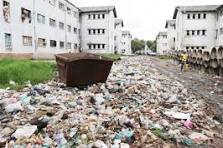South African Police Rocked by Explosive Mkhwanazi Revelations
- Southerton Business Times

- Jul 10, 2025
- 2 min read

A storm has erupted within the South African Police Service (SAPS) following a bombshell revelation by Lieutenant General Nhlanhla Mkhwanazi, head of KwaZulu-Natal police, during a press conference on 6 July 2025.
In a fiery post on social media platform X, Mkhwanazi accused Police Minister Senzo Mchunu and Deputy Commissioner Shadrack Sibiya of interfering in high-profile crime investigations and colluding with criminal syndicates. He claimed that drug cartels, business elites, and senior politicians have infiltrated SAPS, and revealed that a task team probing political killings was disbanded—allegedly at the instruction of Mchunu’s office.
Political Fallout and Institutional Support The exposé has sent shockwaves across the political landscape. Multiple opposition parties, including the Economic Freedom Fighters (EFF), Democratic Alliance (DA), and Umkhonto Wesizwe Party, have called for Minister Mchunu’s immediate suspension and a full-scale parliamentary inquiry.
The South African Human Rights Commission (SAHRC) described the allegations as a “significant challenge to police integrity,” urging swift executive intervention. President Cyril Ramaphosa, currently attending the BRICS summit in Brazil, acknowledged the scandal as a “grave national security concern” and promised to address it upon his return.
Analysts and rights groups are warning that political entrenchment may hamper accountability. “Corruption is deeply rooted and unlikely to be addressed unless there’s a major shift,” said Johannesburg-based political analyst Joe Mhlanga.
South Africa’s Shock, Zimbabwe’s Cautionary Tale The Mkhwanazi–Mchunu scandal represents both the risk of state capture in law enforcement and the rare emergence of institutional bravery. The fact that a provincial police commander could level such accusations publicly—and remain free to do so—speaks to South Africa’s evolving democratic fortitude.
In contrast, Zimbabwe’s policing system remains tightly controlled by political oversight. Any attempt to expose internal corruption of this magnitude could easily result in suppression or retribution. Whistleblowers in Zimbabwe often operate without legal protection or public support.
Yet there is a lesson here for Harare. Zimbabwe does not need to wait for a national crisis to pursue reform. Institutional safeguards—such as independent oversight bodies, enhanced whistleblower protections, and transparent investigative procedures—can protect both officers and the public from politicised policing.
A Warning and an Opportunity While South Africa’s police force faces intense scrutiny, the moment could mark a turning point—if it leads to structural reform. For Zimbabwe, the lesson is urgent: build accountability before the cracks become fractures.
What happened in South Africa didn’t start with scandal—it started with courage. The critical question for Zimbabwe is not whether a Mkhwanazi exists here, but whether our institutions are prepared to protect such a figure, should they come forward.





Comments